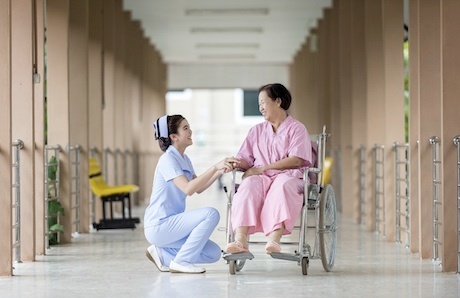Bridge’s history as a provider of mental health and wellbeing services opens in 1987, which means that 2017 is a big deal for us. As we celebrate our 30th anniversary this month, we rejoice in the growth and development of our support services, from Bridge86 Ltd. (1987) to Bridge Mental Health (2011), to Bridge (2017).
“So, what’s in our new name?” Glad you asked.
A holistic view of health and wellbeing
At a practical level, our supporters, donors, and partners have come to refer to us simply as “Bridge” over the years. Those who know us understand that we have a primary purpose of being a mental health organisation.
On a strategic level, we did find that having the qualifying phrase “mental health” in our name can restrict new friends and supporters from grasping the breadth of our work, which includes working with people with housing issues, drug and alcohol problems, and providing training and practical support. Simplifying our name to Bridge is a move towards communicating a more inclusive understanding of the various ways in which we support people in their journey to recovery and wellbeing.
If we’re honest we’ll admit that wellbeing is about more than mental health. For this reason, Bridge’s portfolio has grown to include various wellbeing services, as well as housing and training. One of the latest additions to our services portfolio is the Greenwich Recovery College which opened its doors in autumn of 2014. This new addition, especially, represents our strong sense of working with people as whole individuals, as opposed to viewing them as someone with mental health problems.
The key to changing our service to Bridge’s support is to signify this view of working with people holistically, taking into consideration all aspects of their mental health and wellbeing.
The problem of doing health care in silos
In researching various models of community services, I often come across scenarios where the potential value of care is limited by a fragmented approach to wellbeing.
For example, a service that focusses exclusively on mental health problems could seem to be rather successful based on their success rate of treating mental health problems. What this view might not take into account is that many of those who have been discharged from mental health services are still struggling with drug and alcohol problems, or a learning disability, or some associated vulnerability.
It would be a mistake to stop providing support once someone’s mental health problem has been stabilised, to say: “You’re well now in terms of your mental health, so we can’t help you beyond this point.”
Applying the 5 ways to wellbeing to health services
There’s a lot of data on what it is that keeps people well. While mental health is a certainly a critical determinant of how people keep themselves well, it’s about all of the other things as well. It’s about having a job, good relationships, feeling connected, giving something or meaning something to someone else, and participating in your community.
Research by the UK government’s Foresight Project on Mental Capital and Wellbeing has revealed a list of five ways to wellbeing: connecting, getting active, taking notice or mindfulness, continous learning, and giving to others.
Essentially, Bridge’s approach is to support people to develop each of the facets of wellbeing. We help people to re-engage with their families, or to make new friends, to learn new skills, and to manage their own mental health. Increasingly we’re looking at supporting people in finding employment as well. We know that, of all the things that keep people well, having a job and a sense of purpose or meaning are some of the key things people need to progress in their lives and stay healthy.
A rounded approach to wellbeing
What’s in a name-change? Well, in our case it’s simply this: While we want to raise awareness of the importance of mental health for wellbeing, we believe that it’s necessary to focus on all the aspects of wellbeing: connecting, being active, mindfulness, continuous learning, and to give.
If you’re curious to know more about our services and approach, consider joining us for our 30th anniversary conference on What Works in Wellbeing, taking place on the 23rd of February.To find out more and book a place, please contact Julie Leggatt at jleggatt@wlcreative.org.uk or call 020 8298 9677.

